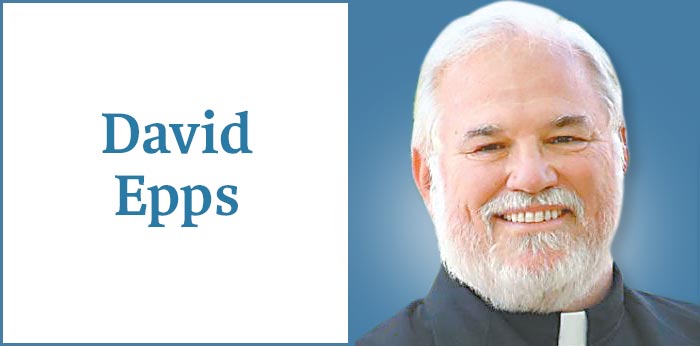(Continued from last week)
It is a well-known fact that some of the best runners in the world are Kenyans. Nearly all the Kenyans I have met, and that would be several hundred, have the body of a cross country runner.
In 1998, when I was in Kenya, that image held true, with rare exception. In fact, it was a cultural rarity for a Kenya to be overweight. Perhaps it is because the bulk of their diet seems to be fruit, rice, vegetables, and fish. And, occasionally, chicken or goat. Or, perhaps, because so many walk many miles as a means of transportation. Those better off ride bicycles and some few have cars.
But, back to the apparent “fit look” of Kenyans. I was told that, if someone is overweight, it is because they have more than that which is sufficient. If they do, it is because God has blessed them. And if God has blessed them, it is because they are holy. So it came to be that I was to meet a bishop-elect in Kenya.
After introductions, he looked me over and said, approvingly, “Father David, you are a holy man. In fact you are the holiest man I have ever seen in my life!” At least I know where I can go to be appreciated!
The average Kenyan is far from wealthy. In 1998, the average salary was between $2 and $4 a day. Yet, at least among the Christian population I met, life itself was celebrated as a blessing.
Once, when we were driving to a church meeting, the roads were crowded with people, entire families, who were gaily dressed in colorful attire. At the time, we were 10 miles outside the village.
“Who are all these people and where are they going?”
I was informed, “They are going to church! You will see them there.” Ten miles! One way! I was stunned.
Sure enough, later that day, in they came. After the service (services are not brief in Africa), they headed out on foot for the return trip home, wherever that was. It was hard not to compare them with the many American Christians who are so lazy or indifferent toward the worship of an Almighty God who sent His Son to die for us.
Many of the Africans I met were not theologically sophisticated. But they more than made up for it in their love and dedication to both God and Church. For many that I met, spirituality was not something confined to a box that they took out on Sundays. They lived their faith in a present and dynamic way.
And their music! I experienced chills (one person called it the “Holy Ghost goose bumps”) whenever an African choir would sing in their native language during their church services. No microphones, electronic equipment, or enhancement doo-dads; just pure and heartfelt worship. Just thinking about it causes my eyes to moisten.
I also discovered that two biblical words are, apparently, universal. These are “Amen” and “Hallelujah.” “Amen,” when translated, comes out to be something like “so be it” or “thus it is so.” “Hallelujah” is understood as “praise the Lord” or “let us all praise the Lord together.”
During the preaching, which was often translated, one could clearly hear these words — a lot. Sometimes spoken, sometimes whispered, at other times shouted out, these words, which needed no translation, peppered the sermon delivery. An entire congregation responding to the sermon with these words is very encouraging to the preacher. It does nothing, however, to shorten the sermons of appreciative priests!
In every service, whether in a cathedral church in Kampala or under a tree in a field, the services were always crowded. In one case, the seats filled an entire soccer field and, under an open African sky, people remained for hours. Sometimes, services were held in tents with 200-300 people, including passersby who wandered in to see what the commotion was all about, which filled the tents to an overflow capacity.
I have to admit, the sight of these throngs of people, including children, who worshipped for hours in the broiling sun — or even in the rain — without complaint made it very difficult to see ourselves, or any Westerner for that matter, as possessing anything approaching spiritual superiority.
I thought I was going to Africa as a priest. It turned out that I went as a student.
(To be continued.)
[David Epps is the pastor of the Cathedral of Christ the King, 4881 Hwy. 34 E., Sharpsburg, GA between Newnan and Peachtree City (www.ctk.life). He is the bishop of the Charismatic Episcopal Diocese of the Mid-South which consists of Georgia and Tennessee and the Associate Endorser for the Department of the Armed Forces, U. S. Military Chaplains, ICCEC. He may contacted at [email protected].]













Leave a Comment
You must be logged in to post a comment.